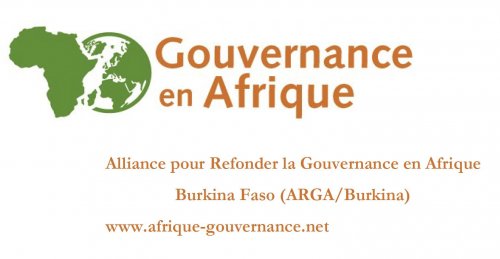7 Key Takeaways: Cost of Politics
Population: 21.5 million
Head of Government: Captain Ibrahim Traoré (interim)
Ruling party/coalition: Military
Last election: 2020
Next election: 2025
Number of registered voters: 6.4 million
Year of study: 2019
Average cost to seek election to legislature: CFA 7 million (US$12,700)
Total average cost to get elected to parliament as % of annual MP salary: 64%
Main source of funding: Personal resources

Annual salary of MP: CFA 10.9 million (US$19,800)
The state subsidy for the 2015 legislative elections amounted to 353.8 million CFA (US$650,000) to support the campaign of 99 political parties and coalitions.
The average amount disbursed by candidates to their party in legislative elections is CFA 4.1 million (US$7430).
For the 2016 municipal elections, the average campaign expenditure was around CFA 1 million (US$1810).
Population: 21.5 million
Head of Government: Captain Ibrahim Traoré (interim)
Ruling party/coalition: Military
Last election: 2020
Next election: 2025
Number of registered voters: 6.4 million
Year of study: 2019
Key Findings
Click on the headings below to find out more information
Cost of the campaign
- According to the study, candidates' contributions stem from personal savings and loans. Some candidates claim to have taken out bank loans of up to more than CFA 5 million (US$9060) to run their campaigns.
- The largest personal investment by a candidate in the 2015 campaign amounted to CFA 45 million (US$81,520). Most MPs surveyed spent below CFA 10 million (US$18,115). The lowest investment by an MP during the 2015 campaign was CFA 500,000 (US$905).
Findings
- The development of mercantilist relations between candidates and voters comes at the expense of political activism. The voter’s choice often depends on the guidance given by religious and customary authorities, and the financial clout and local influence of the candidate. Competence and programmatic offer are not decisive criteria.
- Public funds are far less than the financial resources required. Political parties therefore develop various strategies for mobilising resources to finance election campaigns. The major political parties benefit from the support of private sector operators, who expect a return.
- Private sector operators finance campaigns according to the following modalities: direct support to candidates, contributions to parties and financial support to candidates in their regions of origin. The private sector also supports the electoral campaigns of the parties through in kind donations such as gadgets, commercial goods and food.
- The commodification of electoral processes is increasingly visible, as most voters expect their votes to be bought.
- Candidates with the more financial means fare better than the others because money is a determining factor in the mobilisation of voters. All political parties interviewed in the study acknowledge that there is a sharp increase in campaign spending that distorts the democratic game.
Consequences for democracy
- Once elected, political actors feel obliged to create and maintain networks of clients that they support financially to maintain a voter base for the next elections. This contributes to increasing the cost of electoral campaigns, but also the ‘in office’ costs.
- Money plays a central role in the relationship between the elected official and his or her constituents. Voters expect the elected official to be very generous, when participating in social activities: village customary and religious celebrations, baptisms, weddings and funerals.
- Once elected, the political actor remains more concerned with the financial demands of his constituency, than in good governance. Money is spent in public rallies, community events, voters' medical cost and school fees, repayment of debts incurred during the campaign, donations to vulnerable people and gifts to traditional leaders.
- The decisive influence of money in electoral campaigns is a key factor of exclusion of those segments of society that do not have sufficient financial means: young people, women and the poor. Political competition is increasingly becoming a matter for wealthy people or people with powerful financial networks capable of supporting an election campaign.
Recommendations
- Improve legislation by including provisions related to the mobilisation of resources by political parties and formations and by introducing a ceiling on campaign expenditure and regulation of private donations.
- Educate the electorate in a way that links the principles of transparent and fair elections to the accountability of elected officials.
- Prohibit the external financing of electoral campaigns and political party activities and strengthen the transparency of the financial management of parties by clarifying the role of the parties' financial officer.



